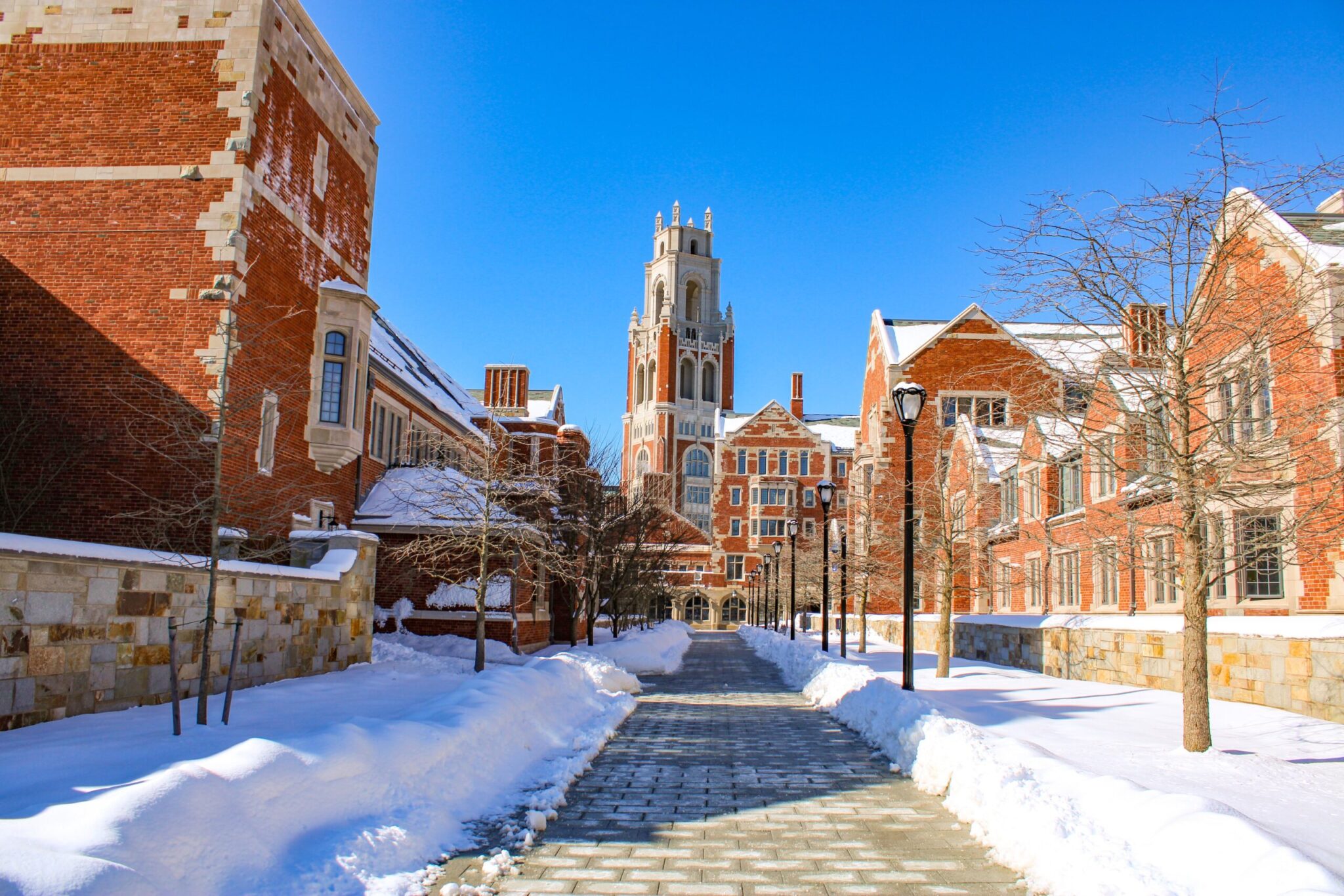Bike shop in Franklin and Murray has been gearing up to help students
The Justa Sanchez Bike Shop, shared by Benjamin Franklin and Pauli Murray Colleges, offers Yale students free bike repair, advice and conversation three afternoons a week.

Jessie Cheung
Last winter, Kyle Sirianno — a Yale Environmental Health and Safety specialist — stumbled upon an unused room shared by Benjamin Franklin and Pauli Murray colleges during a routine safety inspection.
The room, they remembered, had three bike stands and a small work table.
“Did you know you have a bike shop?” Sirianno said they asked Maria Bouffard, Franklin’s assistant director of operations. Bouffard explained that it had been sitting vacant since the COVID-19 pandemic and that there was no one to run it, but that Sirianno could do so.
Sirianno accepted the offer.
Together Bouffard and Sirianno gathered the necessary funds, put together a group of student volunteers and officially opened the Justa Sanchez Bike Shop — named after donor Linda Sanchez’s father — in March 2023.
“It has been a huge success,” Bouffard said. “The bike community at Franklin and Murray has really blossomed.”
Sirianno now runs the shop with two paid student aides — Jhan Setthachayanon ’26 and Vivian Whoriskey ’25 — from 4 to 6 p.m. every Monday, Wednesday and Friday. They offer free bike repairs and advice to anyone who walks in. Setthachayanon said the trio usually gets about four to five people stopping by a day, many of whom are regulars. Some people, Sirianno noted, just come to talk.
The bike shop and its basic supplies are funded by Franklin’s budget, but the materials are largely recycled. The shop makes use of abandoned bikes that Yale Facilities picks up around campus, as well as tools that Sirianno brings in from his home shop. They sometimes put loose parts together and build what Sirianno calls “Frankenstein bikes.”
When bikers require a more comprehensive repair — one requiring materials the bike shop does not have — Sirianno, Setthachayanon and Whoriskey direct them to buy supplies online.
“We’re like consultants, almost,” Setthachayanon said. Still, he expressed hope that the bike shop will develop a small inventory of essential parts so that people can be relieved of having to fix their bikes with their own money.
Setthachayanon emphasized that the bike shop is a cooperative and educational space. He said that he, Whoriskey and Sirianno help their customers understand what is broken, how to fix it and how to take better care of their bicycles in the future. They said they often remind people to keep their tires inflated to avoid a pinch flat or to degrease their chain to prevent shifting problems.
“We’ll show you how it’s done,” Setthachayanon said, “and we’ll do it together.”
Both Setthachayanon and Sirianno said they see the bike shop as a space to encourage Yale students to seek out more experiences in the New Haven region.
For that reason, they said they often ask newcomers, “How do you get to the beach?”
“It’s another way of saying, you should get out more and explore, and a really fun and easy way to do it is with bikes,” Sirianno explained.
Sometimes the shop hosts group rides to places around New Haven such as West Rock or Edgewood Park. Sirianno recalled a time that he took a biking group to an ice cream shop, only to find that no one had wanted ice cream — they had just come to enjoy the ride.
For Sirianno, the bike shop is not only a great resource for Yale students wanting to get out more, but also a first step in fostering safe and equitable communities. Car-centered cities, he said, are in many ways built to enforce segregation. He said that he believes that a resurgence in bicycles might help to transcend those barriers and integrate communities.
“Bikes build community,” he explained. “Cars are inherently isolating devices.”
Sirianno said that he hopes that Yale students who attend the bike shop will implement what they have learned into their lives post-grad.
For example, he offered, these students might now consider commuting options that are not car-based and fossil fuel dependent.
“You guys are gonna build the future,” Sirianno said. “Think about bikes while you’re doing it. Include bikes in that plan.”
Benjamin Franklin and Pauli Murray Colleges opened to students in 2017.







